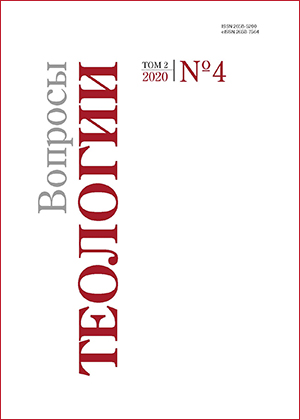South-Eastern Russian Church Council in 1919 in light of the legacy of the All-Russian Local Council of 1917–1918
DOI:
https://doi.org/10.21638/spbu28.2020.406Abstract
The article is devoted to identifying the place of the South-Eastern Russian Church Council of 1919 in the social and church life during the period of the Russian Civil War. The author notes a significant increase in public and scientific interest in its legacy in recent years, explained, in particular, by the awareness of the Southern Russian Council with the Sacred Local Council of 1917–1918, which can be traced in the article. The processes that took place during this period in Russian Orthodoxy must be considered as a council-centric process, of which the South-Eastern Council was also a part. The Council sought to preserve both the conciliar character of solving Church problems, which had just been restored at the Local Council, and the approach to finding ways to develop Church life, which released the accumulated huge creative potential of the Church people. The continuity of the issues raised, as well as the procedural and structural relationships between the two Councils is traced in the article. The Southern Russian Council sought to continue the work of the Local Council on administrative and territorial changes in the dioceses (in this case, the South of Russia under its control), and tried to implement the parish charter. The South-Eastern Council is also interesting because it was the first experience of determining the position of the Church in the socio-political space of the White South, against the background of a complex political struggle, even in the camp of the White movement itself. While maintaining the priority of moral values, the South-Eastern Council sought to distance itself from the political struggle. However, in its proclamations, the Council certainly condemned the civil conflict and revolution, which it saw as a reflection of the moral decay of society.
Keywords:
Russian Orthodoxy, church councils, conciliarity, conciliatory heritage, political position of the clergy, administrative and territorial reform of dioceses, Civil war
Downloads
References
References
Downloads
Published
Issue
Section
License
Articles of "Issues of Theology" are open access distributed under the terms of the License Agreement with Saint Petersburg State University, which permits to the authors unrestricted distribution and self-archiving free of charge.




